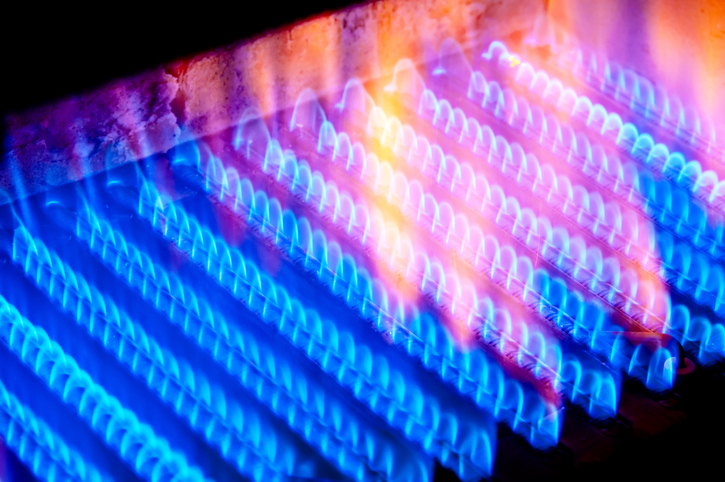When the temperature in your home drops a few degrees, you hear the soft comforting “whoosh” of the furnace starting. When you put a pot on the stove, you turn the knob and a ring of blue flame appears. Most likely, the water in your home is also heated by a blue flame. You know it’s natural gas providing heat in all these different ways, but where did it come from? What is it, actually? And, with all the warnings about gas stoves in the news lately, is it safe?
Maertin Heating and Cooling is here to explain. Like coal and oil, natural gas is a fossil fuel, the result of millions of years of pressure and heat breaking down organic material deep beneath the surface of the earth. That process produces a mixture of compounds that we call natural gas. Most of that mixture, about 70-90%, is methane gas. The remainder is made up of natural gas liquids, such as butane and propane, and other nonhydrocarbon gases, like helium and nitrogen. Natural gas builds up around coal and oil formations, between layers of rock, and sometimes within porous rocks like shale or sandstone.
Thousands of years ago, some industrious humans began tapping into natural gas as a source of energy. However, these examples are relatively rare and were typically dependent on natural vents of gases. More commonly and more recently, natural gas was seen as a nuisance byproduct of oil and coal extraction, making those combustible processes even more dangerous. In the early 1800s, natural gas as a byproduct of coal production fueled gas use in communities, largely for street lamps. The success of these streetlights was the catalyst for the expanded use of and the demand for more natural gas.
This increased demand led to innovations in gas capture and extraction, from increasingly efficient pipeline networks to new capture processes. For dedicated natural gas extraction, wells are built to capture venting gases. Fracking, a newer and somewhat controversial technology, extracts gas by pumping a pressurized solution into the natural gas formation to releases the gas from the rock. However it’s extracted and captured, natural gas it then processed to separate useful from less than useful products. Since the 1930s, an odorant has been added—the rotten egg smell—to make leaks easier to detect, improving safety and efficiency.
So how safe and efficient is natural gas, given its abundance of methane—one of the most concerning greenhouse gases? Maybe you’ve been hearing about new concerns about gas stoves and are wondering what home energy solutions are right for you. Well, methane gas is a harmful but also naturally occurring greenhouse gas that has a long history of fueling our fires. That long history has produced lots of methane emissions, but has also made modern natural gas extraction, storage, and use increasingly efficient. Our goal is to always use natural gag as safely and efficiently as possible, particularly in our homes. Improving that safety and ultimately transitioning to alternate, renewable fuels is the larger, overreaching goal.
To ensure the natural gas used in your home is safe and efficient, install carbon monoxide detectors, one on every floor of your home, including the basement. A detector should be within 10 feet of each bedroom door, and there should be one over any attached garage. Replace detectors every five years.
Even if your home is all electric, these detectors are necessary, since natural gas can seep into your home from the ground. Check and maintain all gas appliances to ensure they continue operating safely.
A safe natural gas system is an efficient natural gas system. Small leaks in hoses, fittings, and pipes can leak natural gas into your home, impacting air quality. Regular maintenance helps your systems and appliances work longer, ensuring that natural gas goes where we want it – burning away under our soup pot – and away from where we don’t want it – in our lungs and atmosphere.
Call Maertin Heating and Cooling for a safety check on your gas-powered furnace each and every year. If you do smell rotten eggs at any time in your home, evacuate every living person and animal. Outside your home, call Nicor at 1-888-Nicor4U (1-888-642-6748) immediately to report the smell and potential gas leak.



